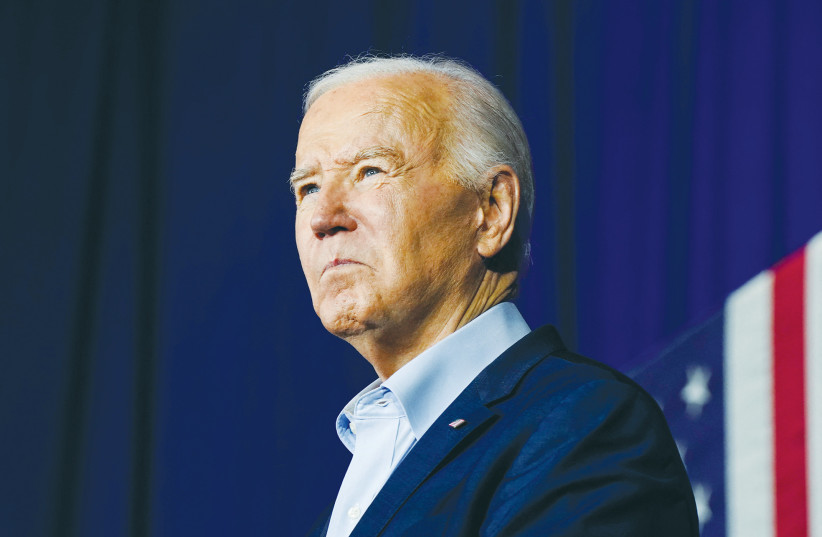It has never been more obvious that the Biden administration has no alternative strategy for dealing with the Iranian threat. Despite reports from the International Atomic Energy Agency (IAEA) that Tehran is in violation of uranium enrichment regulations, and despite Iranian behavior that directly harms American interests in the Middle East as Iran wages war in Iraq and Yemen through terror militias loyal to it, the US government continues to rely on secret meetings brokered by various countries in the region to discuss issues with Iran.
According to recent US reports, an Iranian-American dialog was recently held through the mediation of Oman and focused exclusively on the issue of lifting Western sanctions against Iran. According to the US, the dialog was also about stopping attacks by the Houthi group Ansar Allah in the Red Sea.
The media reports need no further confirmation than the extension of the decision to ease sanctions against Iran so that it can benefit from the frozen assets of more than 10 billion dollars, which confirms the unchanged position of the Biden administration, despite the events of recent months and days.
Since taking office, the Biden administration has attempted to engage in a dialog with Iran, hoping to contribute to a breakthrough on other issues. While this approach has led to diplomatic disaster for the US, the White House is sticking to it in the absence of an alternative strategy for dealing with Iran.
The request to Iran to help stop the Houthi attacks, officially confirmed, reveals the failure of the Operation Prosperity Guardian coalition that the US hastily formed to repel the attacks and protect the Red Sea trade corridor.
It also confirms the correctness of the position of the countries that did not participate in this coalition, not only because it did not achieve its goal, but also because Washington, as has been its custom in recent years, abandoned its allies and conducted a solitary dialog with Iran without discussing with them or considering the impact of such an approach on their interests and security. The actions of President Biden’s administration undoubtedly reinforce Iran’s strategic advantages in the Gaza war.
Moreover, it solidifies Iran’s role as a regional driver of events, rather than confronting that role and restraining Tehran and its proxies. Moreover, a dialogue with Iran on ending the Houthi attacks is a recognition that legitimizes Tehran’s armed relationship with the Houthi terrorists - an American admission of a fait accompli that limits the effectiveness of deterrence.
Implications of US-Iran dialogue

On the other hand, it helps to reinforce the Iranian regime’s sense of strength and victory and its ability to achieve its strategic goals in the Middle East. Also, this American behavior undermines Israel’s own security and reflects the inability of the US to protect Israel other than through dialogue with Tehran.
The issue also affects the credibility and reputation of the US. At a time when President Biden was addressing the American people in his State of the Union address to deter Iran and end its threat through confrontation with the Houthi terrorist militias, his representatives were negotiating with the Iranians on a deal that would allow them to achieve that same goal.
The Iranian-American dialog has not been interrupted since President Biden took office. But right now, given the circumstances and the regional environment in which it is taking place, it seems to be very revealing. However, it seems that President Biden is fully convinced of how difficult it is to counter the Iranian threat by means other than dialog.
This helps encourage Tehran to continue its behavior without fear or concern. Without a capable American deterrence strategy for dealing with Iran, the US will not be able to contain terrorist militias.
The writer is a UAE political analyst and former Federal National Council candidate.
